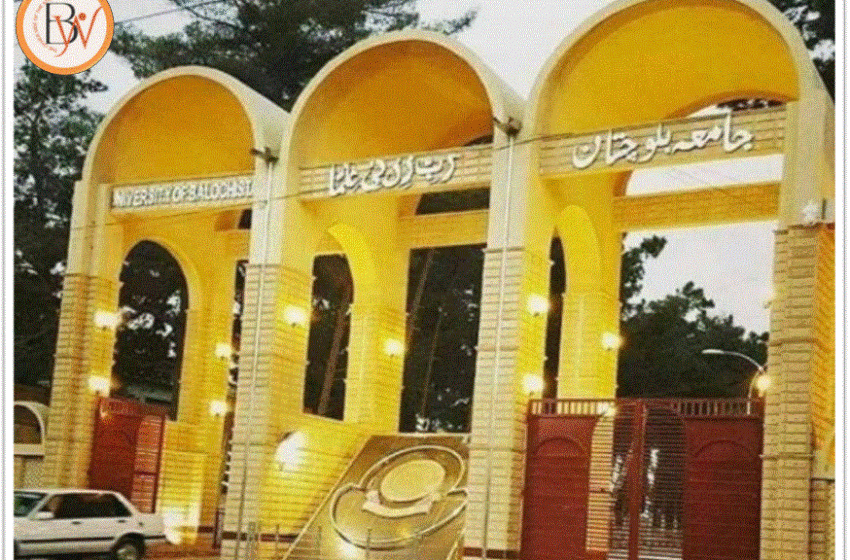Indian State Should Focus on Unconventional Methods: Jamal Nasir Baloch
Protests in Balochistan Over Military Camps and Students’ Profiling

QUETTA: Students at the University of Balochistan have accused the Pakistani forces of invasive profiling under the pretext of anti-narcotics operations.
According to details, security personnel in anti-narcotics uniforms entered the university’s girls’ hostels, targeting Baloch students for profiling. The students were reportedly gathered, subjected to intrusive questioning, and recorded on video.
The students have questioned the rationale for isolating only Baloch students for these investigations. They argue that these actions represent clear instances of unjust profiling and harassment, which they believe is illegal and discriminatory.
Local sources report that no drug-related complaints have been filed in the university’s girls’ hostels thus far. The actions by the forces are being described as illegal and aimed at profiling rather than addressing any actual drug-related issues.
In a statement to the media, the Baloch Women Forum has strongly condemned these actions, saying that the profiling and harassment of Baloch female students under the guise of drug enforcement will not be tolerated.
The Forum criticised the Pakistani authorities for creating a climate of fear and mental pressure through unwarranted interrogations and recordings.
The Forum has vowed to resist these oppressive measures and called for an end to the state’s increasing interference and harassment within educational institutions.
Yesterday, students at a girls’ college in Kharan District protested the establishment of a Frontier Corps (FC) camp within the college premises. During the protest, students chanted slogans against the camp’s construction and warned that they would intensify their protest if the camp were not removed.
The protesters gathered at Kharan Red Zone said that the camp’s presence has significantly disrupted their educational activities. They argued that establishing a camp within an educational institution violates Baloch traditions and adversely affects girls’ education.
It is noteworthy that similar instances have occurred in Balochistan, where forces have converted educational institutions into military camps, thereby disrupting educational activities.









